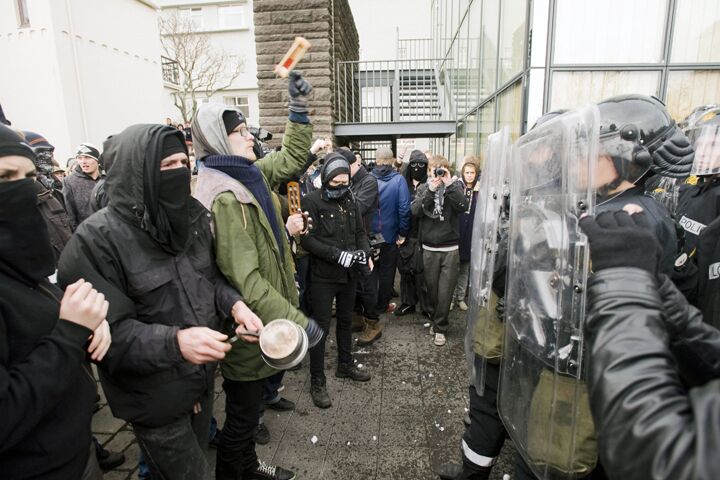
Iceland: Financial Crisis Brings Down Government
Violent protests and growing dissatisfaction with the government’s handling of the economic crisis caused Iceland’s Prime Minister Geir Haarde to call for early elections Friday.
Iceland had its worst street riots in 50 years as 2,000 protesters—out of a population of just 320,000—took to the streets of Reykjavik on Thursday, hurling paving stones at Iceland’s parliament building. The day before, protesters threw eggs and soft drinks at Haarde’s limo.
Iceland’s economy has been hit hard by the financial crisis, and the people are holding the government responsible. Unemployment has risen sharply; inflation is also rising. Economists predict the economy will shrink by 10 percent.
Iceland will hold elections in May. Geir Haarde says he will not run again, due to a malignant tumor in his throat. Polls suggest that left-wing parties will make big gains in the elections. Haarde’s Euroskeptic party is set to lose a lot of votes.
This is about more than Iceland though. Leaders across Europe are worried that their governments could share Iceland’s fate. Mass protests have also hit Bulgaria, Latvia, Lithuania, Hungary and Greece.
The head of the International Monetary Fund, Dominique Strauss-Kahn, predicts the downturn will cause more unrest. It could happen “almost everywhere, in Europe certainly, and also in emerging countries,” he said in an interview with the bbc last Wednesday. “You’ve had some strikes that look like normal, usual strikes, but it may worsen in the coming months.” Later, he added, “The situation is really, really serious.”
EU ambassadors in Brussels are closely monitoring the issue. European leaders have organized a summit in March to discuss the rising protests.
Social unrest caused by the credit crisis is certainly a trend to watch. A whole swath of right-wing parties took power in the wake of unrest and economic collapse in the 1929 Depression.
For more information, see our article “Did the Holy Roman Empire Plan the Greek Crisis?”
